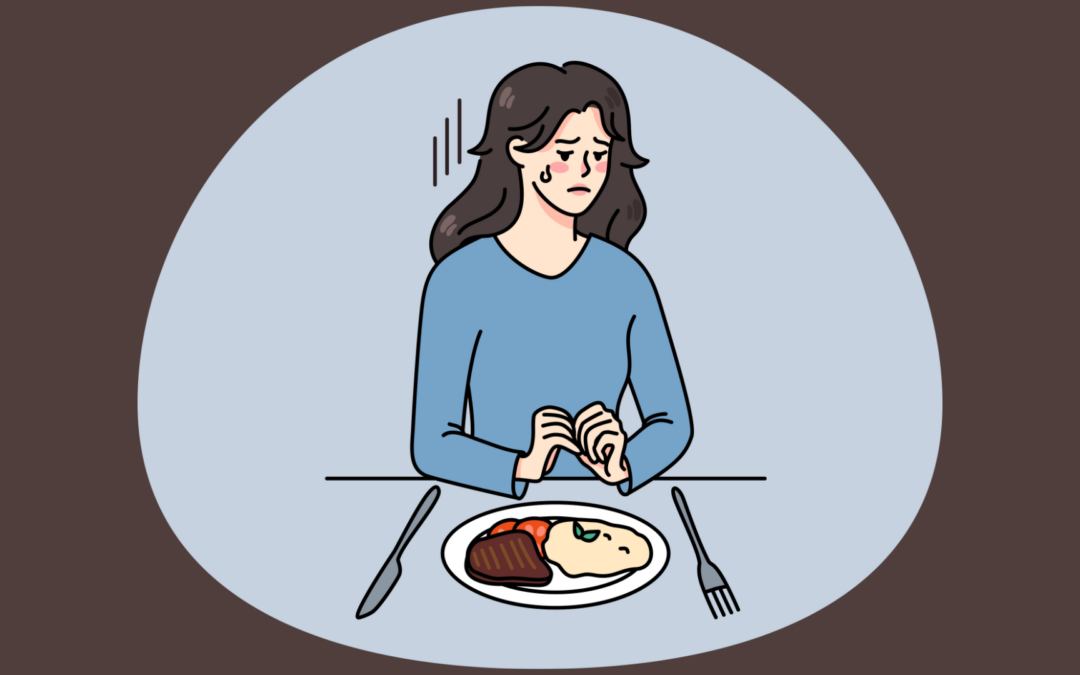Eating disorders are complex mental health conditions that can have severe physical and emotional repercussions. It’s crucial to recognize that eating disorders come in various forms, each with its distinct characteristics and challenges. In this blog post, we’ll explore the different types of eating disorders, shedding light on their unique features and the importance of seeking professional support, such as eating disorder therapy in Salt Lake City, for effective treatment and recovery.
Anorexia Nervosa
Anorexia nervosa is perhaps one of the most well-known eating disorders. Individuals with anorexia often have an intense fear of gaining weight and may resort to extreme measures to control their food intake, leading to significant weight loss and malnourishment. Seeking specialized eating disorder therapy in Salt Lake City can provide individuals with anorexia nervosa the comprehensive support and treatment they need to address the underlying psychological factors contributing to their disordered eating behaviors.
Bulimia Nervosa
Bulimia nervosa is characterized by a cycle of binge eating followed by compensatory behaviors such as self-induced vomiting, misuse of laxatives, or excessive exercise. This pattern of behavior can be emotionally distressing and physically harmful. Effective eating disorder therapy can help individuals struggling with bulimia develop healthier coping strategies and address the root causes of their disordered eating patterns.

Binge Eating Disorder
Binge eating disorder involves recurrent episodes of consuming large quantities of food, often in a short period, accompanied by feelings of loss of control. Unlike bulimia, individuals with binge eating disorder do not engage in compensatory behaviors. Eating disorder therapy can provide essential support for individuals with binge eating disorder, offering guidance on managing their relationship with food and addressing emotional triggers that contribute to their eating behaviors.
Avoidant/Restrictive Food Intake Disorder (ARFID)
ARFID is characterized by limited or selective food intake, often due to sensory sensitivities, fear of aversive consequences, or lack of interest in eating. This disorder can lead to nutritional deficiencies and impaired growth in children and adolescents. Professional intervention, including specialized eating disorder therapy in Salt Lake City, is crucial for individuals with ARFID to expand their range of acceptable foods and address any underlying anxiety or fear related to eating.
Other Specified Feeding or Eating Disorders (OSFED)
OSFED, previously known as Eating Disorder Not Otherwise Specified (EDNOS), encompasses a range of disordered eating behaviors that do not meet the full criteria for anorexia, bulimia, or binge eating disorder. Despite not fitting neatly into specific diagnostic categories, individuals with OSFED still require specialized care, including tailored eating disorder therapy in Salt Lake City, to address their unique challenges and foster recovery.
Orthorexia
While not formally recognized as an official diagnosis in the Diagnostic and Statistical Manual of Mental Disorders (DSM-5), orthorexia involves an obsession with “healthy” eating to the extent that it becomes detrimental to an individual’s well-being. Those struggling with orthorexia may benefit from seeking professional guidance, potentially through eating disorder therapy in Salt Lake City, to develop a healthier relationship with food and address any underlying anxieties or obsessions related to dietary choices.
Seeking Support Through Eating Disorder Therapy in Salt Lake City
It is imperative for individuals grappling with any type of eating disorder to seek professional support, such as specialized eating disorder therapy. Therapists and treatment providers with expertise in eating disorders can offer personalized care, evidence-based interventions, and a supportive environment conducive to healing and recovery.
Conclusion
Understanding the different types of eating disorders is a critical step toward promoting awareness, empathy, and effective intervention. Whether it’s anorexia nervosa, bulimia nervosa, binge eating disorder, ARFID, OSFED, or orthorexia, each eating disorder warrants specialized attention and care. Seeking qualified support, such as eating disorder therapy in Salt Lake City, can provide individuals grappling with disordered eating patterns the resources and guidance they need to embark on a journey toward improved mental and physical well-being.
Remember, if you or someone you know is struggling with an eating disorder, reaching out for professional help is the first step toward healing and recovery. There is hope, and with the right support, individuals can overcome the challenges posed by eating disorders and cultivate a healthier relationship with food and themselves.

